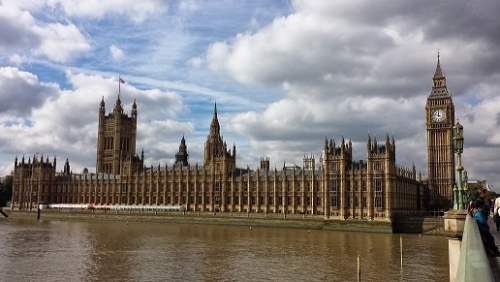HM Government no longer to acquire powers to water down ML laws
Chris Hamblin, Editor, London, 30 January 2018

At the third reading of the Sanctions and Anti-Money Laundering Bill in the UK's House of Lords, the Government has lost its bid to arrogate powers to itself that may allow it to water EU law down in the UK after Brexit.
Their lordships voted over whether to remove a paragraph in clause 16 of the Bill, which deals with the government’s power to enforce sanctions by "replicating existing legal frameworks." The paragraph in question was designed to allow for the use of secondary legislation to create new offences and guidelines to influence the effect of such offences, in particular regard to defence and evidence. An explanatory Government leaftlet stated: "This clause enables the government to replicate the existing legal frameworks which are currently used to enforce sanctions. This will enable continuity once the UK leaves the EU."
209 members voted in favour of removing the paragraph and 192 voted against, and so the change was made. This was a defeat for the Government and the end of any brief hopes of respite from onerous EU regulations that money-laundering reporting officers might have been entertaining. The Government is tabling its amendments accordingly. Before the vote, Baroness Kramer called the Bill "inherently flawed" because it aimed to allow ministers "to eliminate every anti-money laundering regulation and replace them by highly watered-down versions."
Constitutionalists all over the UK are warning of the scope for mischief that Brexit might bring to the rule of Parliament, fearing that an unscrupulous Government will take the opportunity to ensure that the potent powers that the European Union currently wields over British lawmaking will not revert to Parliament but will be diverted instead to cabinet ministers, raising the spectre of a modern version of the tyrannical 'Star Chamber.' Now that it has been defeated, the Government has abandoned its ambition to change laws using statutory instruments (or at the stroke of a minister's pen) and will have to ask Parliament to vote in favour of primary legislation on the subject instead.
Their lordships have also thwarted the Government on a related matter, holding a second vote on the insertion of a new clause regarding public registers of beneficial ownerships of companies based in British possessions overseas. The clause was designed to require, but also empower, the relevant minister to 'help' (i.e. compel) six territories in the Caribbean and North Atlantic to set their registers up, backed up by an Order in Council no later than 1 January 2020 if necessary.
The draftsmen also wanted the clause to "define the terms of these public registers as records which, in the minister’s opinion, are broadly equivalent to provisions in the Companies Act 2006 regarding information about people with significant control."
201 members were in favour of the new clause, with 211 against, so this change was not made.












